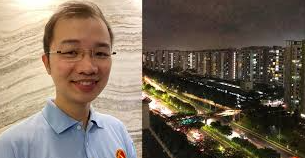Lowering the eligibility age for singles to apply for Build-To-Order (BTO) flats from 35 to 28 would help address their housing needs without negative
Lowering the eligibility age for singles to apply for Build-To-Order (BTO) flats from 35 to 28 would help address their housing needs without negatively impacting young couples’ access to housing, according to Workers’ Party MP Louis Chua. He made this argument during an adjournment motion in Parliament on Sept. 13, calling for a reduction in the BTO eligibility age for singles as a continuation of the government’s efforts to expand housing options.
Chua emphasized that while Housing Development Board (HDB) can continue to prioritize families, lowering the eligibility age for singles would align with the goals of making Singapore’s public housing more inclusive and reflective of societal diversity. He explained that the move would not require a major overhaul to existing policies but could have a significant impact on addressing housing needs for singles.
Housing Supply and Demand Challenges
Chua provided context by pointing out the ongoing housing demand-supply imbalance in Singapore. Despite HDB’s plans to launch up to 100,000 flats between 2021 and 2025, there will be a 20% drop in BTO supply to approximately 18,400 flats by 2024-2025, compared to current levels. Furthermore, the average number of flats launched in recent years is 13% lower than in the 2011-2015 period, exacerbating the issue.
Affordable Housing for Singles
Chua argued that lowering the eligibility age to 28 would benefit singles who, by that age, have typically completed their education and gained some financial independence. He noted that current housing options for singles under 35, such as renting or buying private property, are often unaffordable. While singles can buy BTO two-room flexi flats, they lack access to the same financial grants available to first-time couples.
He proposed a tiered system of housing grants for singles, with younger singles receiving discounted grants that gradually increase as they approach the age of 35.
Changing Social Trends
Chua also highlighted that the expectation for Singaporeans to marry before 35 and live with their parents until then is outdated. He pointed to changing social trends, where Singaporeans are staying single longer and getting married later.
Housing for Singles vs. Families
Chua addressed concerns that lowering the eligibility age for singles would reduce the housing supply for families. He argued that singles typically apply for two-room flexi flats in non-mature estates, while young married couples overwhelmingly apply for three-room or larger flats. Therefore, lowering the age for singles would have minimal impact on young couples seeking housing.
Additionally, Chua emphasized that expanding housing options for singles should not be mutually exclusive from supporting couples and families.
No Need for a Major Overhaul
Chua concluded by stating that lowering the BTO eligibility age for singles to 28 does not require a major policy overhaul. Instead, he called for “urgent and decisive steps” to increase the supply of public housing and address the current demand-supply imbalance. He urged the government to ensure public housing policies are inclusive and reflective of Singapore’s diverse society.
Government’s Response: Ongoing Engagement and Considerations
In response, Senior Minister of State for Communications and Information and National Development Tan Kiat How reiterated that providing affordable and accessible housing is a government priority. He highlighted the government’s engagement with Singaporeans on housing issues through the Long-Term Planning Review (LTPR) and Forward Singapore discussions, where many expressed concerns about the cost and availability of housing.
Tan acknowledged the proposal to lower the eligibility age for singles but emphasized the need to balance housing demand with limited land resources. He warned that increasing demand for flats could lead to higher prices and potentially disadvantage more vulnerable groups, such as elderly singles, single parents, and those with urgent housing needs.
Tan also pointed out that the government has already made efforts to support singles, such as opening access to new two-room flats in 2013, raising the allocation quota in 2015, and increasing the quota to 65% for first-time singles in non-mature estates in 2022. Additionally, singles can qualify for housing grants of up to S$40,000 for new flats and S$80,000 for resale flats.
Further Considerations for the Future
Tan reiterated that while lowering the eligibility age is being considered, careful thought is needed due to land constraints and the potential impact on housing prices. The government will continue to engage with Singaporeans on this issue and work to ensure that housing policies meet the needs of all citizens without compromising affordability or accessibility for key groups.



COMMENTS